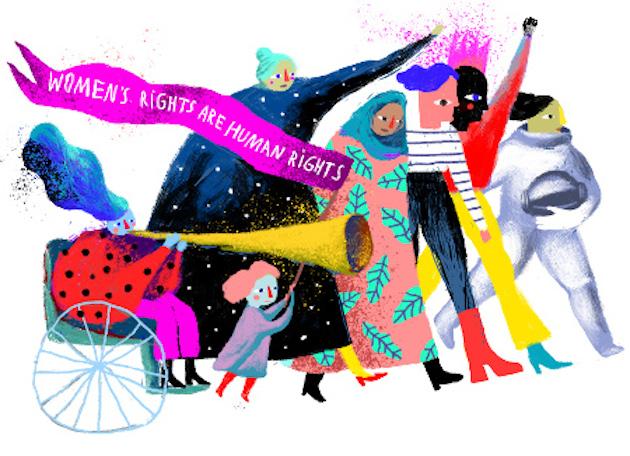
In 2022, Human Rights Watch submitted a request to CEDAW to consider areas of concern regarding the government of Honduras’ compliance with Articles 1,10, 11, 12, and 16 of the CEDAW Convention, covering access to abortion, contraception, and discrimination and violence against lesbians, bisexual and trans women.
Abortion remains illegal under all circumstances, even including when there is a risk to life. People who undergo abortions, and those who provide them, face up to six years in prison. Emergency contraception is also prohibited. In Honduras, 56% of pregnancies between 2015 and 2019 were unintended. Unintended pregnancies can be caused by rape. In 2019, the Public Ministry received 2,773 complaints of sexual violence against women and girls. Based on this data, the most affected age groups include girls and women between the ages of 10 and 19 (representing 54% of cases), girls age 9 and under (13%), and women between the ages of 20 and 29 (12% of cases). In 2021, the number of complaints of sexual violence the Public Ministry received rose to 2,896. Human Rights Watch has heard from women who were raped and forced to proceed with their pregnancies.
Honduras’ bans on abortion and emergency contraception may have particularly harmful impacts on adolescents. Honduras has the second highest rate of teenage pregnancies among Latin American countries. UN human rights experts estimate that the number of unsafe abortions in Honduras could be between 51,000 and 82,000 per year. In 2021, the Honduran Secretariat of Health reported 10,233 hospital discharges for abortion, which may also include miscarriages classified as abortions. This number is a fraction of the estimated number of unsafe abortions.
CEDAW’s recommendations did not lead to any changes in Honduran lack of support for legal abortion or emergency contraception. In Honduras, as per data from the Ministry of Health (2022), every day, three girls under the age of 14 are compelled to continue pregnancies resulting from rape and become mothers.
On 10 April 2024, the Center for Reproductive Rights (CRR) and the Centro de Derechos de Mujeres (CDM) presented a case to the UN Human Rights Committee with the aim of seeking justice on behalf of Fausia, an indigenous Honduran woman and human rights defender of the Nahua People, who survived sexual violence and had to face forced motherhood due to the total ban on abortions. Fausia was attacked by two men, one of whom raped her in retaliation for her work protecting her land as an environmental human rights defender. As a result, she became pregnant and was unable to end the pregnancy.
The co-litigant organizations insisted that the penalization of abortion is a discriminatory measure since it only impacts individuals with reproductive capacity and also reproduces gender stereotypes about women, including: motherhood as an obligation, the idea that third parties (their family or partner, judges, and even doctors) should decide about their bodies because they are supposedly incapable of doing so; or that they are obligated to continue with pregnancy even when it affects their life, health, and integrity.
Honduras’ regressive policies on sexual and reproductive health constitute clear violations of the fundamental rights of women and girls, including their right to life, health, privacy, autonomy, and bodily integrity, as well as to live a life free from discrimination, torture, violence, and persecution. Additionally, their effects are devastating, as evidenced by the case of Fausia. These human rights violations perpetuate cycles of poverty that not only affect the women affected but also their families.
The litigants were supported by the Human Rights Legal Team, the Justice for the Peoples Law Firm, and the National Network of Women Human Rights Defenders in Honduras. They demanded justice for Fausia and that Honduras, in compliance with its international human rights obligations, modify the legal framework that totally criminalizes abortion to regulate it as a human right and an essential health service.
SOURCES: Human Rights Watch Submission to the United Nations Committee on the Elimination of Discrimination Against Women Review of Honduras, September 2022 ; Center for Reproductive Rights, E-mail on WorldPop, 10 April 2024.



